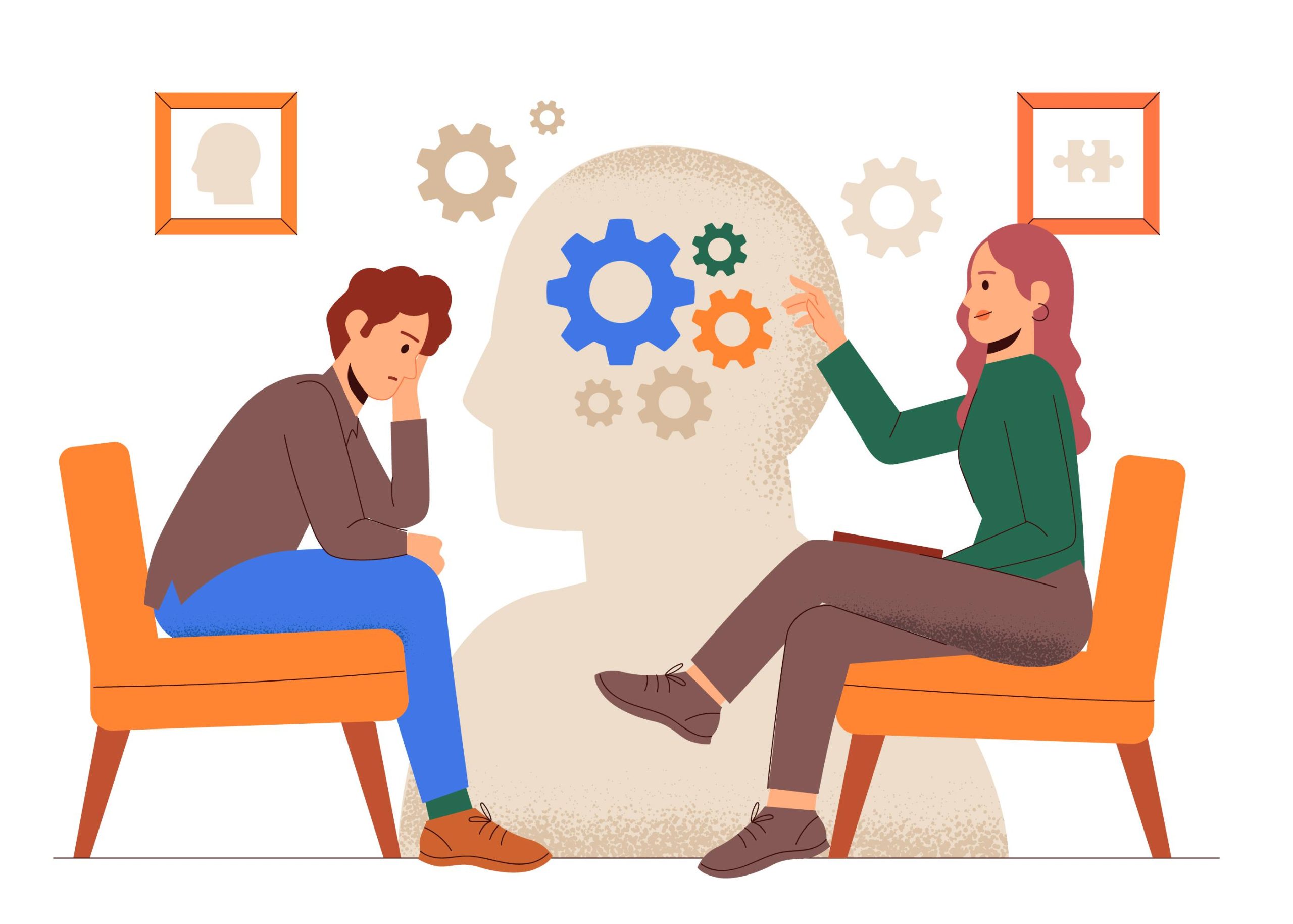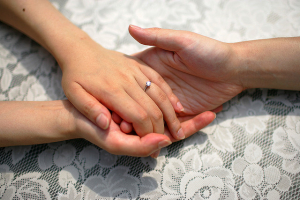When your spouse is involved in an extramarital relationship, it feels as though a core value that marriage is based on loyalty is broken. You feel betrayed, and a myriad questions of ‘what now?’, ‘what does this this mean?’, ‘should I forgive? Or should I leave?’ arise.
The current article is exactly about helping you to work with your emotions and handling these questions. An extramarital affair has a huge aftermath on both spouses. Both places are very difficult and delicate to be in. Yet, as in most cases, there is always a healthier way to deal with a tough situation.
You are in a whirlwind of emotions, following the discovery of your spouse’s affair. Your perceptions and thoughts could be hugely affected and can greatly influence your decisions. The following are pointers from our team that can help you undertake this journey from the initial discovery to eventual decisions in as healthy a way as possible.
In the Immediate Impact of the Extramarital Affair
Regardless of whether it is a complete surprise or no, a revelation of an affair leads to an emotional experience of shock, hurt and grief. These feelings are most natural, since it is one thing to have doubts, and another to actually come face to face with the current state of the relationship. Yet, it is important to keep the following in mind:-
Guard against making Sweeping Conclusions
In a situation as vulnerable as this, you could experience an overriding need to give it some meaning, to answer the “why” of the affair. Because your mind craves for closure, you could end up making some very sweeping conclusions, such as ‘I was never good enough’ or ‘he/she never cared about the relationship’.
These conclusions are usually exaggerated and only lead to despair and guilt or anger and blame. They make you see a distorted picture of reality, where you overfocus on some parts and neglect others.
“When you have such thoughts, it is useful to gently remind yourself that ‘when I’m so upset, I will naturally have upsetting thoughts; however, I also need to see how realistic these thoughts really are before taking decisions based on them’.” – Malini
Most reasons why a relationship gets into a pattern are subtle. In fact, it is because they are subtle that they go unnoticed. It becomes easier to look into these subtleties when you guard against making sweeping conclusions.
Wait for Mental Clarity before taking a Decision
Feelings of anger and resentment are bound to follow the initial hurt and shock. Memories and feelings can come up, leaving you feeling foolish for having trusted your spouse, or angry for having endured your spouse’s flaws and staying committed.
However, refrain from taking a decision about the marriage in the immediate aftermath of the affair. While you have the right to make a choice about the relationship, it is not a good idea to do so as an immediate reaction. You need to stabilize before you take a meaningful decision about your life. So allow yourself to stabilize for your own sake. You need to process your emotions. Let some time go by so that you can get in touch with what you really feel about the relationship.
“Remember that it is okay to feel all that you are feeling, whether it is hurt, anger or mistrust. These feelings and reactions are natural and anybody in your place would go through them. Only, it is important to work through these feelings before taking any important decision. Decisions taken in a stable space have a far less chance of being rash and paving the way for regret.” – Megha
Dealing with Emotions that may arise
Emotional pain is a huge part of coping with infidelity. In this section, we have tried to summarize main emotions that could arise and how you could cope.
Coping with Feelings of Rejection and Inadequacy
At some point, the feeling of rejection could set in and take a toll on one’s self-esteem. Everyone has insecurities since no one is perfect. However, when a spouse cheats, these insecurities become obvious, like they are put under a magnifying glass, causing your self esteem to suffer. Sometimes, this feeling of inadequacy and abandonment runs very deep, making one question their worth as a person and at times even leading to body image issues, feelings of being ugly, unattractive or undesirable.
If you are undergoing something similar, it is useful to think of yourself outside the throes of your relationship. Look at yourself holistically, as a person. As a person, you are much more than this relationship.
“Remind yourself of who you are, what you enjoyed as a child, much before this relationship. Connect with that side of you that perhaps got ignored in the throes of engaging in marriage and family. Remember you are much more than just a husband, wife, father or mother.” – Sadia
Thinking like this will make you realize that while something has probably gone amiss in this relationship, it is not a stamp or testimony to who you are as a person. It helps you see what happened as a problem between two people, not an indication of your worth as a person.
Watch this video to understand and deal with pain
Dealing with Guilt
Some people feel excessively guilty and remorseful when their partner has an affair. They hold themselves responsible for the partner’s stepping out and fixate on “their mistakes” in the marriage.
Remember that an excess of guilt only pulls you down further and reduces your capacity to think through clearly.
“Don’t slip into a pattern of blaming yourself and thinking ‘I have caused this’. Even if there were some shortcomings on your part, remember that you did what was in your control, and that sometimes, people with the best of intentions make mistakes, and that’s because nobody is perfect.” – Malini
Instead of going down a spiral of guilt, try and assess realistically how you can handle things differently in the future.
Guarding against getting stuck in the ‘Victim Role’
While excessive guilt is unhealthy, the reverse – complete blame, is equally unhealthy, because the victim-culprit trap causes more dysfunction rather than realization and growth. Rather, see the situation as a problem in the relationship that needs to be looked into. This way, both spouses can learn from past patterns and grow.
“If you internalize that you are a victim and that your partner is the culprit, it does a lot of damage to your self-esteem and to the situation. A good way to deal with this is to recognize that something about the relationship has become sour or unfulfilling. More often than not, both partners are part of the reason for this sourness. However, no partner has probably harmed the relationship intentionally.” – Sadia
While it is very difficult at such times to deal with all the overwhelming emotions, it is helpful to have the above knowledge at the back of your mind. You recognize what patterns you are slipping into a little better, and the more aware you are, the less are the chances that these patterns can harm you.
Working towards Resolution and Making a Choice
At some point, you will want to move towards resolution, towards understanding what didn’t work out in your relationship and where you wish to go from here. Again, in this section, we have tried to put together whatever will aid this introspection and decision-making process.
Think of the Relationship outside of the Affair
In the aftermath of the affair, it is possible that you begin viewing your marriage through the lens of the affair. It’s almost like the affair is a filter that colors your perception of everything about the marriage. When this happens, you lose objectivity, since your relationship is not the same as the affair.
“Try and look within your relationship outside of the affair. This will give you a less biased picture of what could have affected your relationship and what things need to change. It will become a stepping stone for both, you and your partner, to introspect and initiate change.” – Nandita
Addressing Deeper Questions about the Relationship
As time passes, you may find yourself faced with questions about the relationship, and possibly about yourself. A need and desire for clarity comes up. When this happens, things can get worse with rumination, blaming, depression and aggression. Or, things can get better since you seek to understand what really was not working in the relationship. This is the phase when couples counselling and marital therapy can help tremendously.
“There is usually deeper questioning after the initial hurt and anger have been somewhat processed. It is very important that both partners reach a place where they are able to understand and make sense of what happened to their relationship and their individual journeys in life; because such clarity can help them gauge where they are heading, whether it is working towards their relationship, parting ways or simply working towards self development. This is possible through couples counselling.” – Kunjal
Making a Decision
The stigma and judgements associated with infidelity can make it difficult to make a decision about the marriage. Adding to that, reactions of family, anxiety about children and the overall unsettlement and disruption can make it even more confusing. Take some time to connect to what you really want, so that you feel surer within.
“Decisions are going to be hard nonetheless, but if they are decisions that you personally have made peace with, the impact would be a lot easier to deal with.” – Anusha
If you decide to stay in the marriage, it is important for you and your spouse to have worked through the baggage of the affair and move forward. Marriages do survive affairs, and yours can too, if you want so. Only remember, there were certain unhealthy patterns in your relationship that made it go sour. These patterns need to be understood, worked through and changed, so that your re-investment in the marriage is fulfilling and happy. As Anusha aptly puts it – “You can’t go back to the marriage, you’ll have to go anew.”
If you decide to leave the marriage, remember, it is still important that you don’t carry the feelings of guilt, victimization, inadequacy or low self-esteem with you, because this will color the way you connect to people in the future. You will remain emotionally caught in whatever is unresolved within you. Working through these aspects will help you truly and freely move on.
It would also help to ‘unhook’ from relationships as the main source of happiness. Though partners can be loving and nurturing, they are still imperfect, since they are people. Finding your own space of happiness by connecting more with yourself can help you maintain a healthy self esteem and be more accepting of both, yourself and others. It helps to maintain a balance because you don’t lose sight of other joyous aspects of life when your relationship is going through a difficult phase.
Self Care
Last but far from least, being compassionate to yourself throughout these phases is very important. Eat well, care for your body and for yourself. Spend some time doing something you really like, whether it is spending time with close ones, by yourself, with children, or pursuing a hobby.
“This is a time when mistrust, helplessness and bitterness are residing in your system. Hence it becomes equally important to care for yourself and compensate. This helps to make the journey easier.” – Sadia
Image Credit: Ben Cremi
post contributed by
Inner Space Team
Sadia Saeed, Kunjal, Nandita, Megha, Anusha, Malini

Are You facing Difficulties In Your Relationship?
Consult with Our Trauma Informed Therapists
share this blog!
read similar blogs
Valentine’s Day: Revisiting the concept of love
Revisiting the concept of love Over the years, the concept...
Read MoreEXTRAMARITAL AFFAIRS PART II: WHAT TO DO WHEN YOU ARE HAVING AN AFFAIR?
While the world looks at someone involved in an extramarital...
Read MoreExtramarital Affairs: Part I-Why Do People Cheat In Relationships?
As time goes by, the dynamics of marriage as an...
Read MoreDEALING WITH LACK OF SEXUAL DESIRE : WORKING TOWARDS A HAPPIER RELATIONSHIP
Some of you in your relationships may be in a...
Read More






Dear Vijaylaxmi,
We can sense how difficult this maybe for you. We would like to support you through counseling and are sharing the details of the same with you on email. Since we are not a crisis intervention center, we would encourage you to reach out to any of the following numbers if you need immediate help and have thoughts of suicide:
A. Samaritans Mumbai- 02264643267/ 02265653267/ 02265653247(3pm-
9pm, all days)
B. ICall- 022- 25563291(11 am-10pm, Monday to Saturday)
Warm Regards,
The Inner Space Team